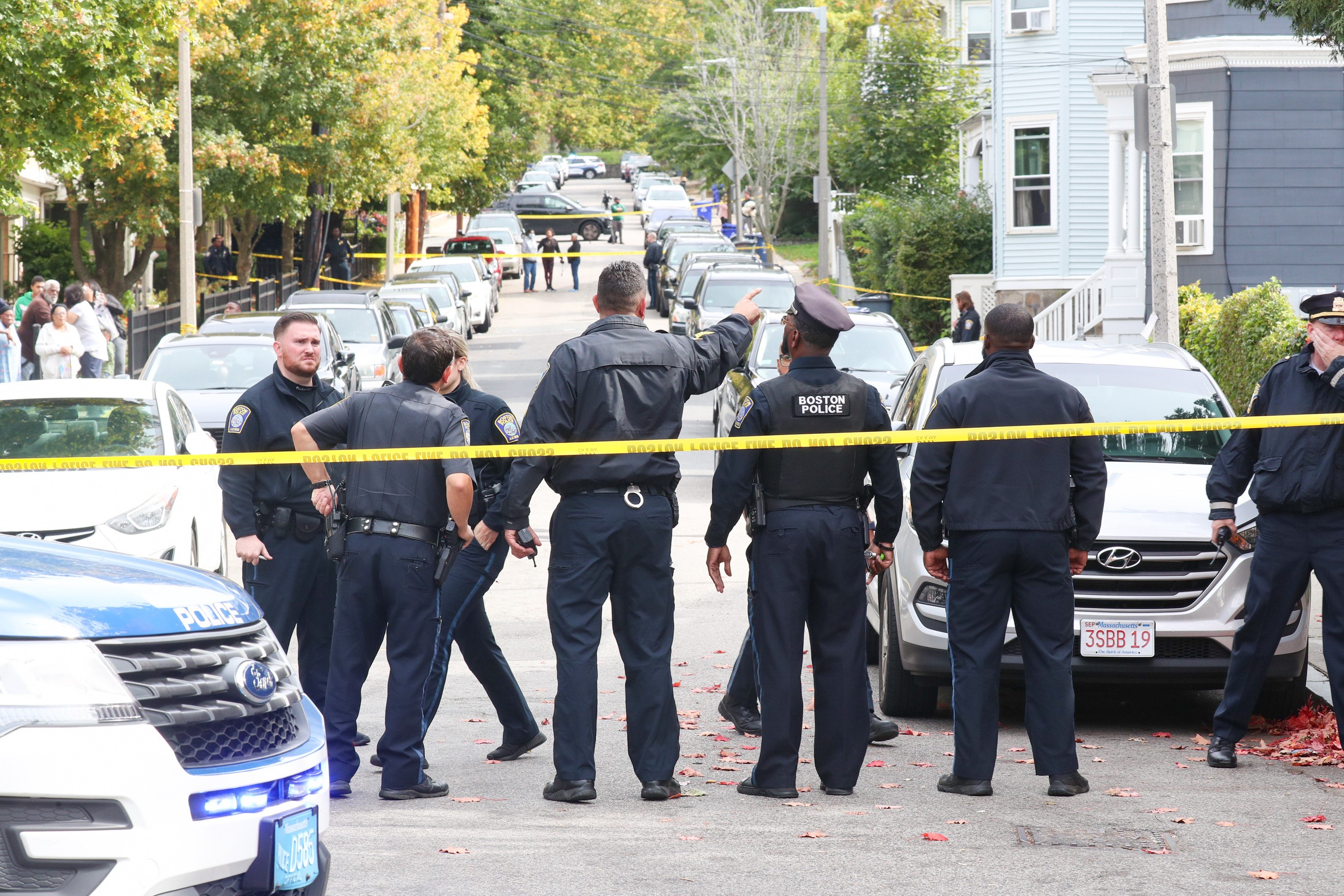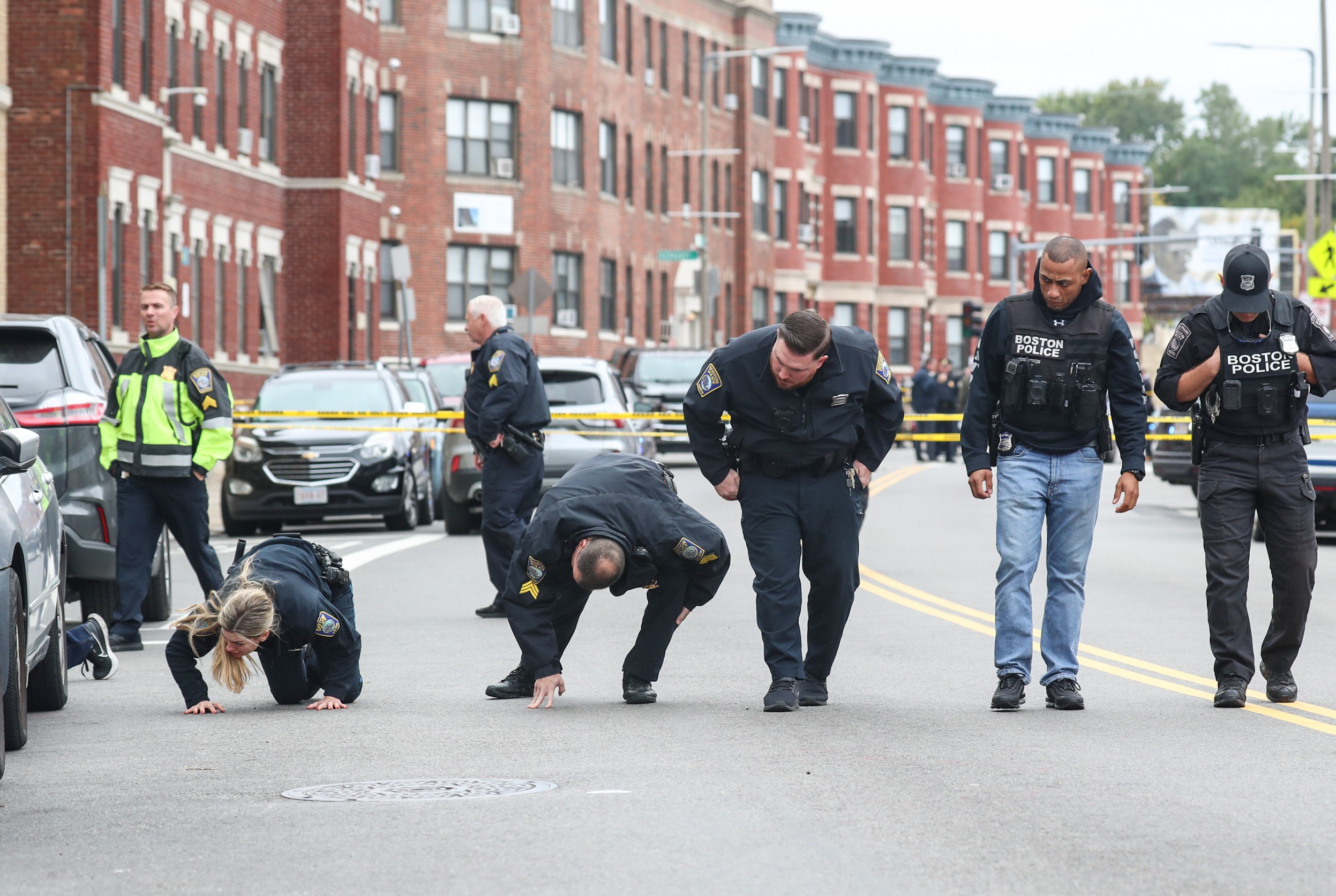Powerful portraits line the walkway at Boston's Seaport Common, sharing the faces and stories of people who have experienced trauma, incarceration and racism, as well as the moments they became "uncornered."
"The Uncornered Project is a way for us to help others visualize that those who are involved in violence are no different than you or me, and that they can be 'uncornered,' and that we all share situations where we have been trapped, stuck, and been in challenging circumstances," said Michelle Caldeira, cofounder of Uncornered.
WATCH ANYTIME FOR FREE
Stream NBC10 Boston news for free, 24/7, wherever you are. |
The nonprofit organization works to connect gang-involved youth in Boston to higher education to break cycles of poverty and violence.
Uncornered gets its name from the idea that with the skills and opportunities to turn away from the "street corners" for good, the young people they empower will become positive leaders in their community.
Get updates on what's happening in Boston to your inbox. Sign up for our News Headlines newsletter.
Caldeira says the organization's work focuses on identifying what people need and connecting them with resources.
"Some of that is financial, that's access to opportunities, that's access to mental health support, and it's access to people who believe in them," said Caldeira. "Those are mentors who can role-model what a way out of violence and tragic situations may look like."
A shooting Monday afternoon claimed the life of a 14-year-old in Roxbury. It happened a week after a shooting outside Burke High School in Dorchester.
More on youth violence in Boston
"Nothing that we do will bring him back to his friends and family, and I take extremely seriously and extremely personally what happens in our community to our young people," said Boston Mayor Michelle Wu. "It's completely unacceptable that anyone would feel the need to pick up a weapon in Boston, so we are fighting every day to do all we can to interrupt, stop, prevent violence, and we know that means stabilizing communities as a whole."
Boston Police Commissioner Michael Cox said partnerships are key to reducing gun violence in the community.
"We're going to do all we can to make it as safe as possible, to get to zero. That's the goal. How do we do that? We enlist other people to help us do that. The community, families, making sure people get the support they need, so they can have another way or another outlet to addressing whatever issues they have," said Cox.
The Boston Police Department has been participating in the Safe and Successful Youth Initiative since 2011. Working with the Boston Public Health Commission, the police department identifies people ages 17 to 24 who have committed, and often been the victim of, gun and gang violence, connecting them with SSYI outreach workers.
SSYI case managers then work with the individuals to address their needs, which could include education, job training, and mental and behavioral health counseling.
The organizations SSYI is partnering with to provide education and career development services include Youth Options Unlimited, Mission Safe, More Than Words, Project Right, Strive, Inner City Weightlifting and Notre Dame Educational Complex.
A 2020 evaluation of the initiative by the American Institutes for Research found in cities with SSYI funding, rates of violent offenses and victimization have steadily declined since 2012. They estimate SSYI led to 815 fewer annual violent offenses.
Tuesday, during a Boston City Council Public Safety and Criminal Justice Committee hearing regarding a $3 million grant to fund SSYI in 2023, Director Roy Martin said while other crime prevention initiatives have come and gone, SSYI has withstood the test of time.
"I think we are one of the only constants in the city throughout that timeframe," he said. "We've seen StreetSafe come and go, we've seen the Streetworker Program be revamped to become SOAR, and now that's on its way out. The Boston Re-entry Initiative is no longer here. The 10-point coalition stopped in 2013-14, so you know something was here throughout that time."
Martin said the initiative does have limitations, because it's focused on people ages 17 to 24, so it doesn't directly reach younger teens. He also told the committee their data analysis shows those most in need of intervention, have aged out of eligibility.
"One data point we look at is the most likely person to kill or be killed is about 30 years old, so we're really trying to pay attention to each developmental increment in a human being's life," said Martin.
Another challenge is reaching people before they become involved in crime.
"We try to focus on the persons who exhibit the highest risk in communities, the highest level of activity," he said. "There's no way to verify that without the BPD."
He also noted that the initiative has the capacity to work with 135 individuals each year and has not met that cap yet.
City Councilor Michael Flaherty, chair of the Public Safety and Criminal Justice Committee, asked if the eligibility could be expanded to reach more people.
"Sometimes we need to be creative in linking a couple different services together that can completely change the direction of someone's life, and that's what we need to redouble our efforts on," said Flaherty.
He echoed calls for collaboration not only between agencies tasked with violence prevention, but also between community members.
"We need to all come together on this," Flaherty said. "There is no one quick solution. We, as a city, need to reach out to all of our partners. Parents need to be engaged. Grandparents need to be engaged."
Following the committee hearing, the grant funding requires city council approval.



